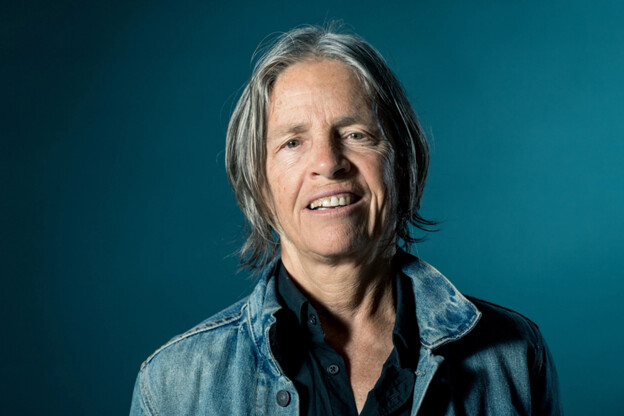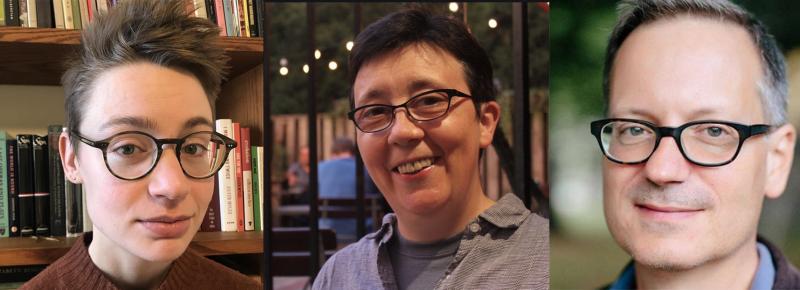
That's right (PoemTalk #151)
Eileen Myles, 'Writing' and 'Mount St. Helens'

Al Filreis convened Stephen Metcalf, June Thomas, and Jess Shollenberger to talk about two poems by Eileen Myles: “Writing” and “Mount St. Helens.” They appeared in Myles’s book of 2001, Skies, and were included by Myles in their volume of selected poems I Must Be Living Twice. Myles’s PennSound page includes several performances of these poems, including a powerful although understated reading of “Writing” here at the Writers House when they were visiting as a Kelly Writers House Fellow in 2016. The recordings we used for the purposes of our PoemTalk conversation were made during an episode of Charles Bernstein’s interview series “Close Listening” in March of 2009.
 Jess Shollenberger is writing about the convergence of queer studies and everyday life studies. Steve Metcalf hosts Slate’s Culture Gabfest, has written a book about the 1980s, and is fascinated by poems about poems. June Thomas is well known for her creation of — and support as producer of — a series of innovative LGBTQ podcasts through Slate and, aligned with this work, for her innovative approach to television criticism. The three together, we think, combine spontaneously to form a memorable discussion of everyday self-image in “Writing” and writing-as-elegy in “Mount St. Helens.”
Jess Shollenberger is writing about the convergence of queer studies and everyday life studies. Steve Metcalf hosts Slate’s Culture Gabfest, has written a book about the 1980s, and is fascinated by poems about poems. June Thomas is well known for her creation of — and support as producer of — a series of innovative LGBTQ podcasts through Slate and, aligned with this work, for her innovative approach to television criticism. The three together, we think, combine spontaneously to form a memorable discussion of everyday self-image in “Writing” and writing-as-elegy in “Mount St. Helens.”
We acknowledge a significant flaw after the spontaneous conversation was completed: we hadn’t conferred prior to beginning the recording about Eileen Myles’s then somewhat recent preference in favor of they/them pronouns, and several of us at times use “she” and “her” in error, for which we hope listeners will forgive us.
This episode of PoemTalk was directed and engineered by Zach Carduner, and was edited by the same talented Zach Carduner. We are grateful to Nathan and Elizabeth Leight for their generous support of PoemTalk. We recorded this prior to the closure of the Kelly Writers House space. Listeners waiting for references to the tribulations of the pandemic hear none because, happily then, it hadn’t happened yet.